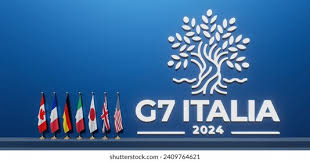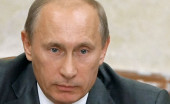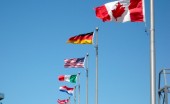Police treatment of a Dartmouth professor stirs anger and debate A retired Dartmouth Dean and good friend who lives in…
G7 2024
Written by Diana Thebaud Nicholson // April 24, 2024 // Foreign Policy, Geopolitics, Multilateralism // Comments Off on G7 2024
 G7 Italia 2024
G7 Italia 2024
On January 1, 2024, Italy assumed, for the seventh time, the Presidency of the G7: the group that brings together Italy, Canada, France, Germany, Japan, the United Kingdom, and the United States of America. The G7, in which the European Union also participates, is united by common values and principles and plays an invaluable role in defending freedom and democracy and addressing global challenges.
The Italian Presidency will last until December 31, 2024, and will feature a dense programme of technical meetings and institutional events throughout the country. The main event, the Leaders’ Summit, will be held on June 13-15 in Apulia.
A key focus of the Italian Presidency will be the defence of the rules-based international system. Russia’s war of aggression on Ukraine has undermined its principles and triggered growing instability, with multiple crises unfolding worldwide. The G7 will give equal importance to the conflict in the Middle East, with its consequences for the global agenda.
The relationship with developing Nations and emerging economies will be central. The engagement with Africa will be a key priority. We will work to build a cooperation model based on mutually beneficial partnerships, away from paternalistic or predatory logics. Particular attention will also be paid to the Indo-Pacific region.
Italy will ensure great attention to migration, together with some of the greatest challenges of our time, including the climate-energy nexus and food security. The G7 has the responsibility and duty to identify, together with its global partners, innovative solutions.
The Apulia Summit
The G7 Summit will be held in Borgo Egnazia, in Apulia, on June 13-15, 2024. The event will bring together the Leaders of the seven member States, as well as the President of the European Council and the President of the European Commission representing the European Union.
In line with previous G7 fora, representatives of a number of States and International Organizations will take part in the work, invited by the Nation that holds the Presidency.
28-30 April
G7 Ministers’ Meeting on Climate, Energy and Environment
Over the past few years, G7 and G20 leaders have also highlighted the important role of cities in implementing innovative urban development approaches and creating a global transformation process towards achieving the Sustainable Development Goals (SDGs). These and other challenges for a fair and inclusive energy transition will be the focus of this G7 Ministers’ Meeting, aimed at adopting ambitious measures to accelerate the reduction of emissions, ensuring the security of energy systems and the economic development of countries.
24 April
Dispatch from Rome: Political stability gives Italy a chance to step into the spotlight
Stability at home translates to leadership abroad
(Atlantic Council) … A year and a half into her tenure, Meloni maintains strong approval ratings. She faces no real threats from the opposition or her coalition partners. … Both those in power and in opposition predict that Meloni will last for the remaining three years of the legislature—barring any twists, which even now no one can write off in Italy.
An important part of this stability comes from the fact that Meloni’s foreign policy priorities are largely supported among Italy’s policymakers and fit within transatlantic priorities. Initially feared as another weak link in the European Union (EU), Meloni has shown herself to be staunchly pro-Ukraine. She is a Euroskeptic but not anti-EU. And while US President Joe Biden differs from her on several notable domestic policies, he has found an ally in Meloni. … She has played a delicate balancing act on China, officially leaving the Belt and Road Initiative—Italy being the only Group of Seven (G7) country to have signed on—while still maintaining economic ties with Beijing. If anything, Meloni’s domestic opposition criticizes her for a lack of follow-through, especially on Italy’s aid to Ukraine and the funds pledged for development projects in North Africa.
Uncontested leadership and support for its foreign policy priorities allow Italy’s government to be much more impactful abroad. This stability comes at an opportune time. Italy holds the G7 presidency in 2024 and for that reason is in the driver’s seat when it comes to advancing the vision of the “steering committee for the world’s most advanced democracies,” as described by US Secretary of State Antony Blinken. Stability and popularity also allow Rome to make its priorities for the West heard, most notably the security of the Mediterranean and Western outreach to Africa.
18-19 April
Communiqués of the Foreign Affairs Ministers’ meeting
Ministers gathered in Capri and adopted three final documents.
The G7 Foreign Ministers under the chairmanship of the Deputy Prime Minister and Minister for Foreign Affairs and International Cooperation, Hon. Antonio Tajani, met in Capri from 17 to 19 April. Here are the final documents drawn up at the end of the sessions.
SITUATION IN THE MIDDLE EAST – pdf
STEADFAST SUPPORT TO UKRAINE – pdf
ADDRESSING GLOBAL CHALLENGES, FOSTERING PARTNERSHIPS – pdf
G7 foreign ministers meet on Capri amid Israel-Iran tensions
Foreign ministers of the Group of Seven (G7) economic powers are meeting on the Italian Mediterranean island of Capri. Tensions in the Middle East and aid to Ukraine amid a Russian invasion will be major topics.
(DW) The meeting of G7 foreign ministers on Capri will discuss a response to Tehran’s attack on Israel last weekend as fears of a wider Middle East conflict grow.
The meeting, which ends on Friday, is also to look at ways of aiding Ukraine to defend itself against Russia’s unprovoked invasion of its territory.
28 March
The G7 needs a permanent secretariat. The 2024 elections cycle demonstrates why.
(Atlantic Council) This “year of elections” has the potential to reshape global politics. At first glance, among the Group of Seven (G7) nations, there are only general elections scheduled in the United States and the European Union (EU). However, it is widely expected that the United Kingdom and Japan will likewise hold general elections this year, with multiple EU member states joining them, too.
These elections could change the foreign policy trajectory of the G7, even if key players such as US President Joe Biden and European Commission President Ursula von der Leyen retain their seats. At the same time, the G7 faces a slew of challenges. Among these are the emergence of a new “axis” among Russia, Iran, and North Korea, as well as the continued strategic challenge posed by China. There is also the potential for current progress on climate action to be derailed by climate-skeptic populist governments. Amid all of these challenges and more, the G7 must be able to continue its work as “a steering committee for the free world,” as US national security adviser Jake Sullivan described it.
To ensure the G7 stays the course amid potential future political upheavals, pools its staff resources, and develops a separate policymaking capacity alongside its presidency, it must commit to establishing a permanent secretariat.
In many ways, the G7 is already drifting toward establishing a permanent secretariat. The days in which the G7 was solely a “fly-in, fly-out” summit series ended with the onset of the COVID-19 pandemic, as G7 members made regular contact with each other to develop global health policy and address the global economic slowdown. This dynamic was further reinforced when G7 leaders held emergency meetings to coordinate their responses to Russia’s invasion of Ukraine. Nevertheless, as global security continues to deteriorate, from the emergence of the “coup belt” in Africa’s Sahel region to the twin threats of the Israel-Hamas war and Red Sea crisis, the G7 must maintain political inertia to head off these dangers. Meanwhile, the current G7 contact structures are insufficient for the tasks at hand.
A permanent G7 secretariat would offer several important benefits. Firstly, with the numerous elections taking place in 2024, policy continuity after changes in government will be vital for global security. This dynamic is especially visible with the growing debates in the US Congress over aid to Ukraine, Taiwan, and Israel. While a secretariat would not necessarily guarantee such aid, it would partially institutionalize such policies.



